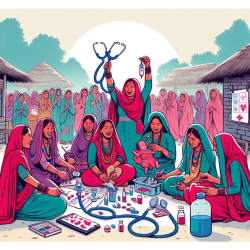Intimate partner violence (IPV) is a pervasive issue that affects individuals across various demographics and geographic locations. However, the challenges are particularly pronounced in rural areas where resources are limited. A recent study titled "Acquired Brain Injuries and Intimate Partner Violence: A Situational Analysis of Help Seeking Barriers in Rural Northern New England" sheds light on the complexities surrounding acquired brain injuries (ABIs) resulting from IPV.
The Impact of Acquired Brain Injuries
Acquired brain injuries, often resulting from non-fatal strangulation or repeated head trauma, can have profound effects on a survivor's cognitive and emotional well-being. These injuries can impair memory, executive function, and emotional regulation, making it difficult for survivors to seek help or implement safety plans. Unfortunately, many healthcare providers and advocates remain unaware of the impact of ABIs, leading to underdiagnosis and inadequate support for survivors.
Barriers to Help-Seeking in Rural Areas
The study highlights several barriers that hinder help-seeking behaviors among IPV survivors in rural areas:
- Lack of Resources: Rural areas often have fewer healthcare facilities and social services, making it challenging for survivors to access necessary support.
- Cultural Norms: The normalization of violence and societal expectations can discourage survivors from seeking help.
- Geographical Isolation: Physical distance from healthcare facilities and shelters further complicates access to care.
- Social Consequences: Survivors may fear social repercussions or retribution if they disclose their experiences.
Improving Practitioner Skills
Practitioners can play a crucial role in addressing these challenges by enhancing their skills and awareness regarding ABIs in IPV cases. Here are some strategies to consider:
- Implement Universal Screening: Incorporate routine ABI screening into patient assessments to identify potential brain injuries early on.
- Provide Trauma-Informed Care: Understand the unique needs of IPV survivors and offer empathetic, patient-centered care that acknowledges their experiences.
- Enhance Interdisciplinary Collaboration: Work closely with social workers, legal advocates, and mental health professionals to provide comprehensive support for survivors.
- Pursue Further Education: Attend conferences, webinars, and workshops focused on IPV and ABIs to stay informed about best practices and emerging research.
The Path Forward
The findings from this study underscore the need for systemic changes to better support IPV survivors with ABIs. By implementing universal ABI precautions and enhancing practitioner skills, we can improve outcomes for survivors and address the hidden burden of these injuries. Practitioners are encouraged to explore further research on this topic to deepen their understanding and enhance their practice.
To read the original research paper, please follow this link: Acquired Brain Injuries and Intimate Partner Violence: A Situational Analysis of Help Seeking Barriers in Rural Northern New England.










